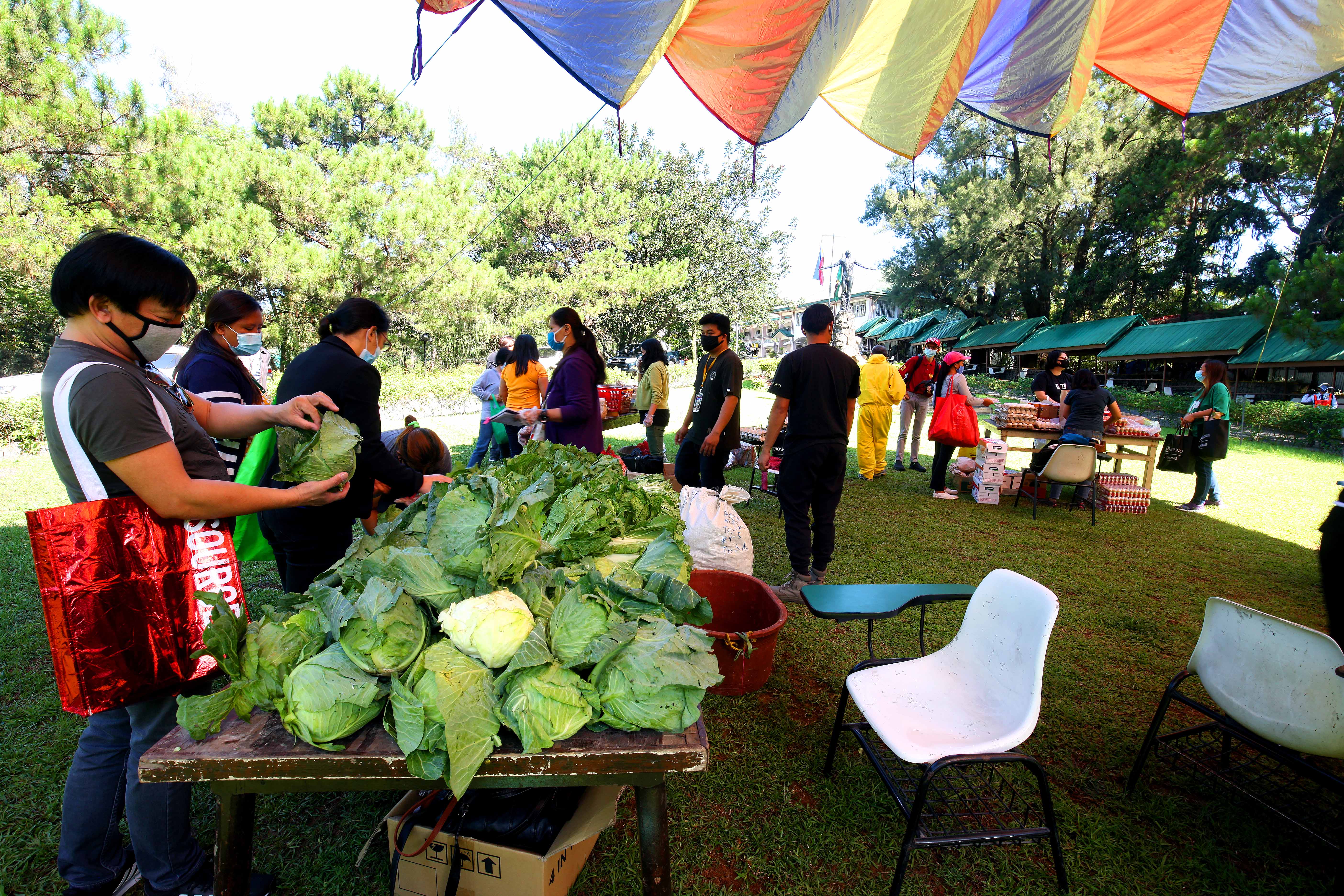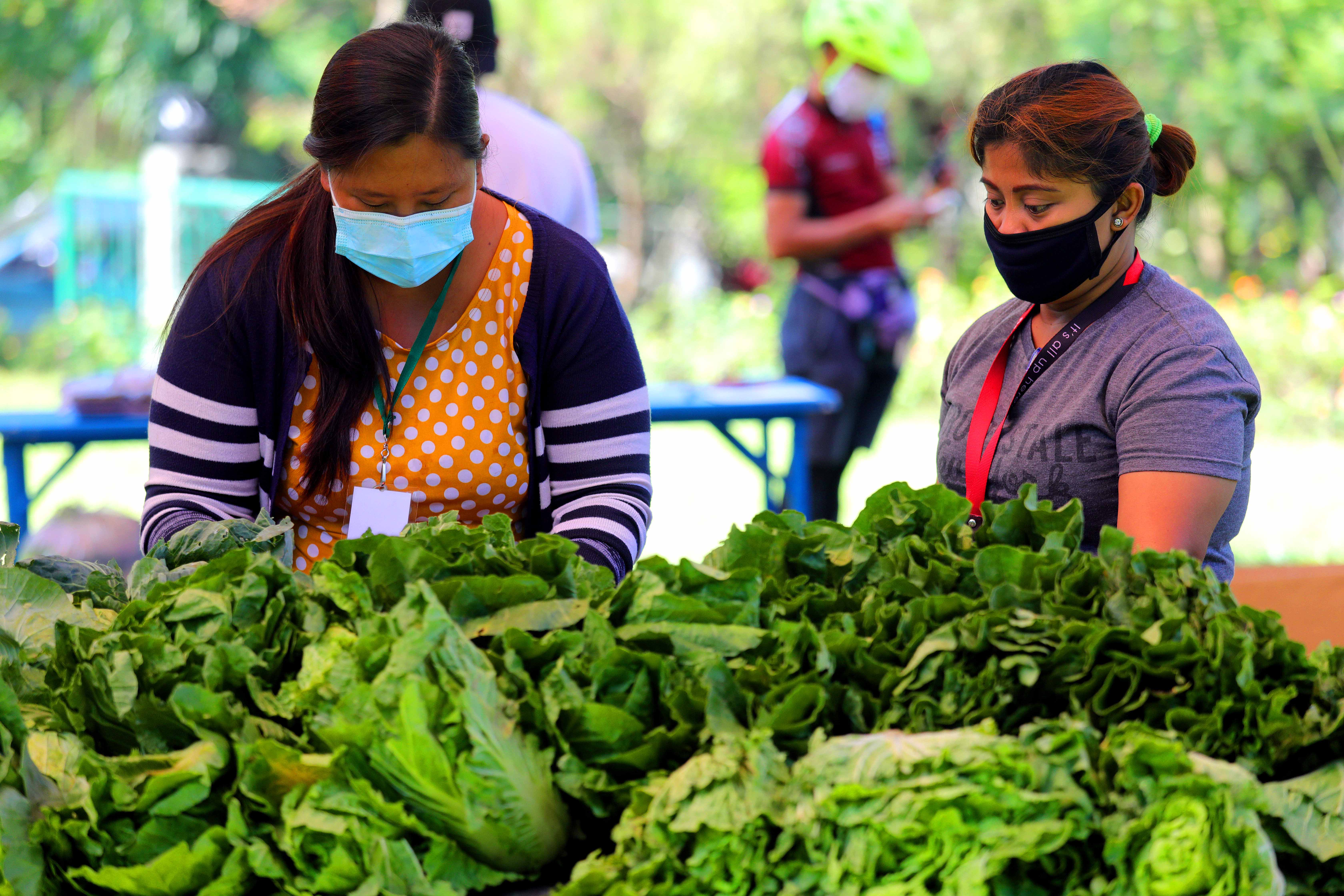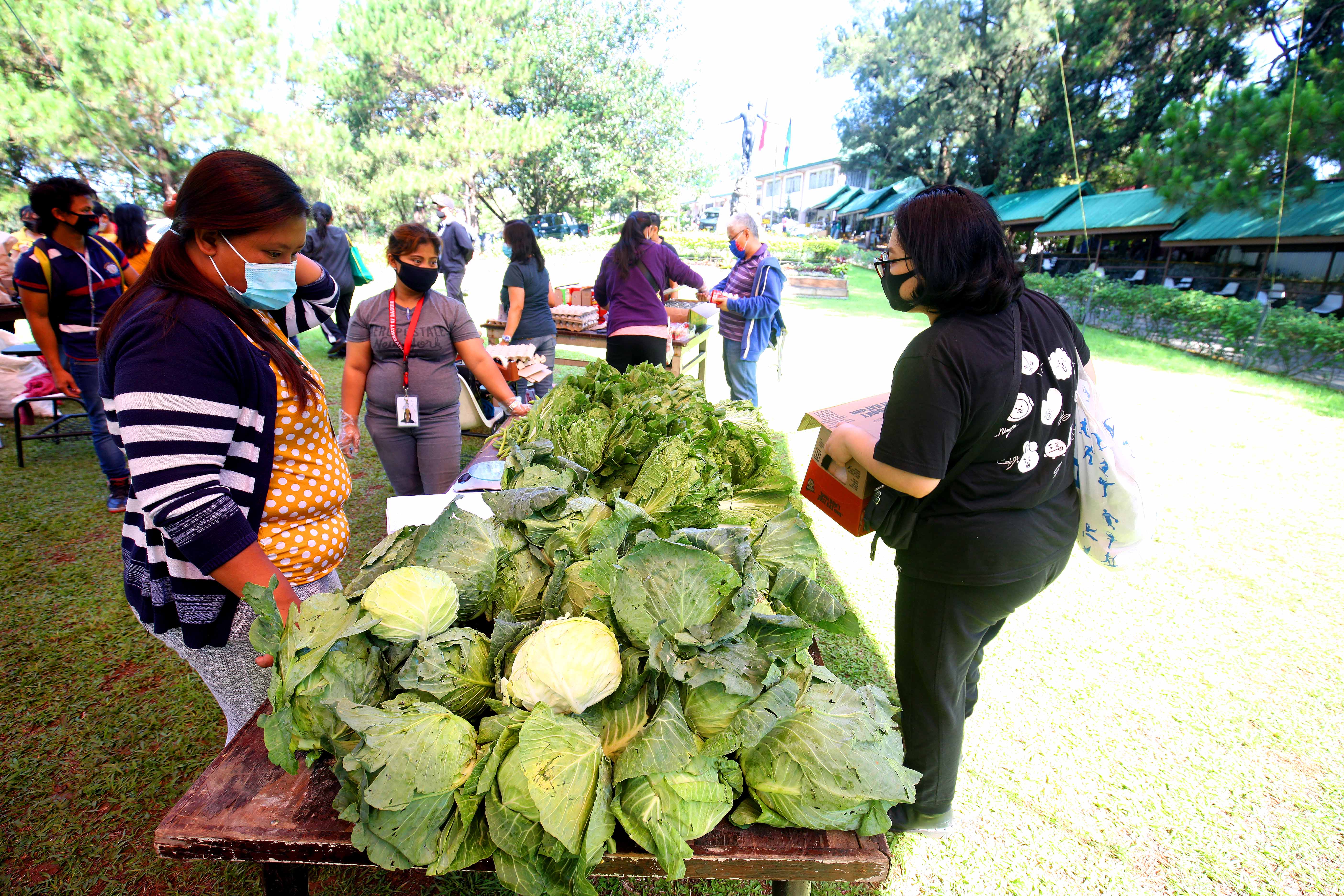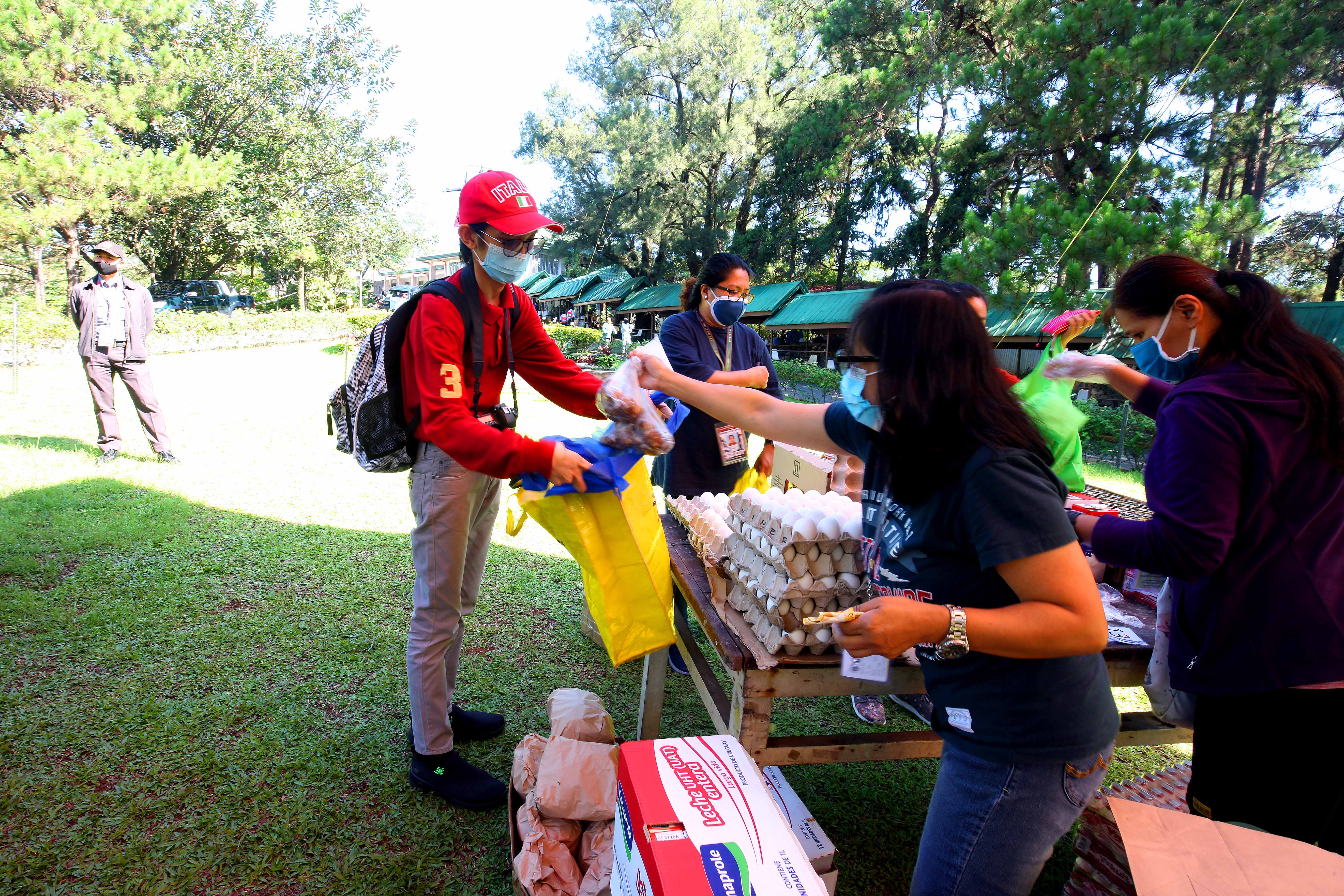A farmer’s market has been set up at the University of the Philippines Baguio (UPB) Oblation grounds on Friday, May 29, purposely to generate income for local growers who are unable to sell their harvest due to lockdowns imposed on their regular trade routes as a result of the COVID-19 pandemic.
The university said it will host this market activity every Friday from 8:30 in the morning until 12:00 noon. The public is also advised to bring reusable bags. Dubbed “UP Ikot: Talipapa sa Oble,” the market is open to the public who are reminded to strictly observe health safety protocols such as the wearing of face masks, temperature checks before entering, hand sanitation, and physical distancing.
With physical distancing, market activity has been strictly confined within the parallel driveways leading to the campus, ending at the round-about at the flagpole area before clients make their way toward the exit. The “walk through” and “drive through” system facilitates faster transaction even as work proceeds within the entire university premises of which workers and visitors are subject to a more stringent set of health screening procedures notably a triage system.
The initiative proceeds from the University of the Philippines Alumni Association (UPAA) Baguio-Northern Luzon Chapter in coordination with the UPB Alumni Relations Desk. Alumni Relations Officer (ARO) and UPB faculty member Prof. Shekinah Dorelle Queri said this measure has been taken to shore up living conditions among farmers, especially those from Benguet, as their incomes have been greatly reduced as a result of curfews and stay-at-home measures taken to slow down the spread of the disease.
To assist the buying public, the farm produce and other items are sold at source prices without any markup. The use of the space is free, and all proceeds will be accrued to the farmer. UPB alumnus Paraiso “Raio” Ronquillo Bautista coordinated the selection of the first group of farmers participating in the activity. Some farm items sold include vegetables such as cabbage, Chinese cabbage, potatoes, Baguio beans, lettuce, and cauliflower. Some vegetables are organically grown. The farmers threw in a bundle of carrots free for every purchase of listed items.
Rice, including the indigenous varieties such as kintoman and heirloom rice were sold by weight. There were also non-food items such as laundry soap, while canned goods, milk and snacks including facemasks were also listed.
However, this is not the first time that the university held an activity of this sort. Before the pandemic, UPB allots Mondays as a schedule for organic vegetable growers to sell their produce within the campus with faculty and staff as their clientele. Chancellor Raymundo D. Rovillos said in these times of crisis, it is even more imperative to provide targeted assistance to the public and local farmers were, in fact, identified as a sector hit hard by the COVID-19 pandemic.
The chancellor added the Baguio populace also benefits from this initiative since they are able to procure fresh vegetables at lower cost. He said this project will continue for as long as there is a demand, or the situation improves in a way that farmers are able to independently support themselves.
(Text and photos by Roland Rabang, UP Baguio Public Affairs)




